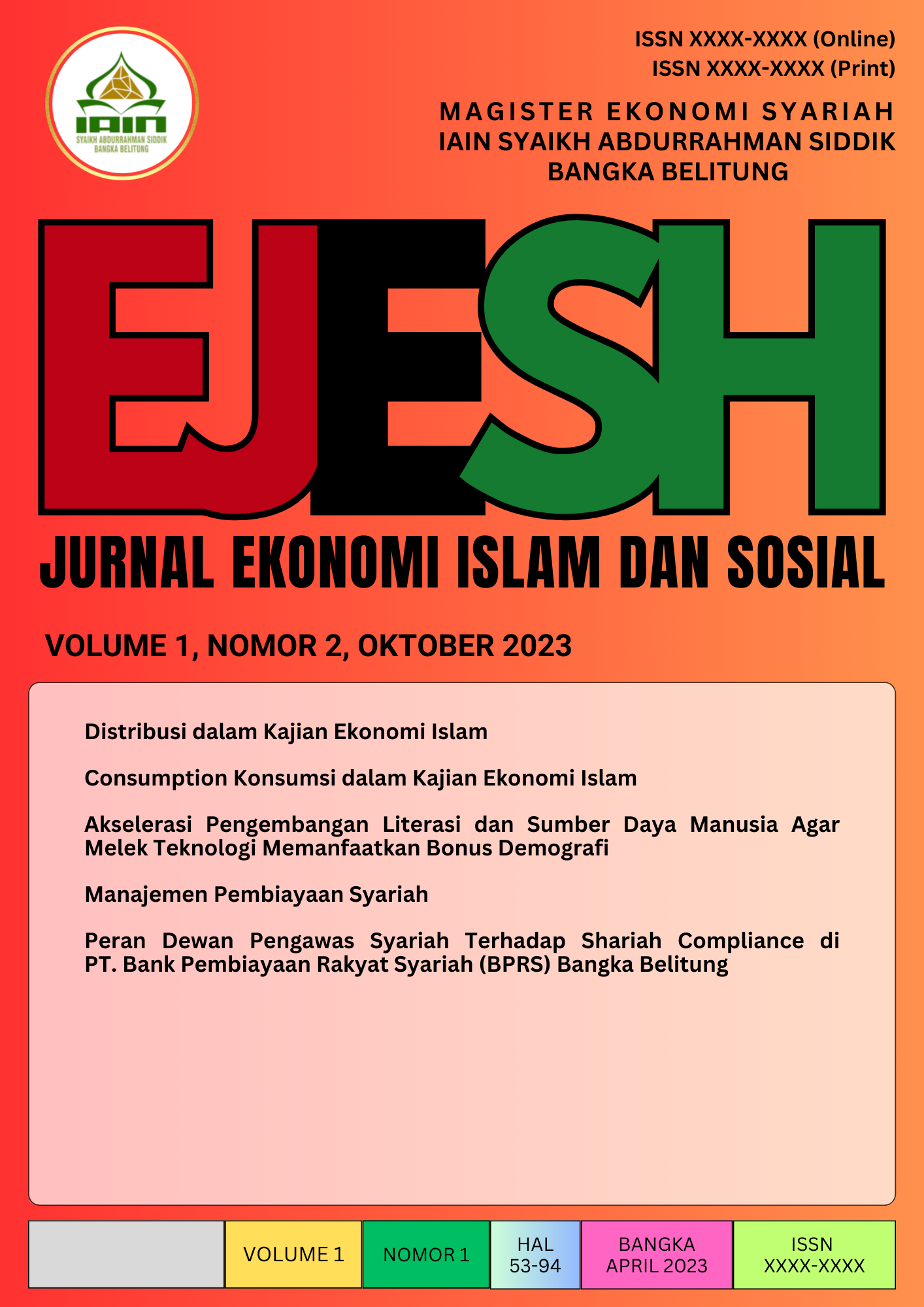Manajemen Pembiayaan Syariah
Abstract
Islamic financial management refers to the systematic execution of planning, budgeting, collecting, storing, reporting, and managing monies by Islamic financial organizations, in strict adherence to Islamic principles. The fundamental concepts that form the basis of Islamic financial management encompass justice, equilibrium, and caution. Islamic financial management encompasses several crucial elements, including the planning aspect, which involves establishing financial goals and objectives, as well as formulating financial strategies and policies. Additionally, it involves the budgeting aspect, which entails identifying sources and allocating funds to attain the predetermined goals and objectives. The collection aspect involves the acquisition of monies from a variety of sources, both internal and external. The storage part involves the prudent management of gathered monies to ensure their safety and efficient utilization. The reporting component involves the preparation of financial statements to furnish stakeholders with information. The management element pertains to endeavors aimed at enhancing the efficacy and efficiency of fund administration. Effective Islamic financial management is essential for Islamic financial institutions to successfully fulfill their objectives, which include offering financial services in compliance with Islamic principles and generating societal advantages.









.png)


